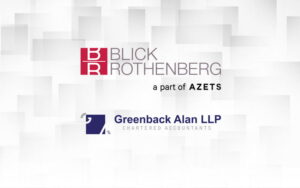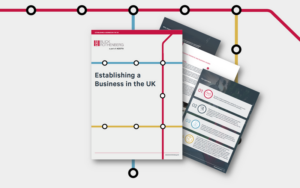Key Considerations for Short-Term Business Visitors
Business travel is integral to many international organisations however managing the tax compliance of business travellers can be complex
30 March 2025 | Author: Martin De Souza
Short-Term Business Visitors (STBVs) are facing increased scrutiny by global tax authorities. Many countries are tightening regulations and closely monitoring the activities of overseas employees/workers
UK STBV Arrangements
STBVs encompass a broad range of individuals, primarily professionals employed overseas that are travelling between countries for work. However, statutory directors of UK entities are excluded from the STBV category.
Employers must withhold funds under the Pay as You Earn (PAYE) system for all employees, including international employees visiting the UK. There is no de minimis limit, so a real-time PAYE obligation arises even for a single UK workday.
However, there is a solution. Where an STBV Agreement is obtained from HM Revenue & Customs (HMRC), UK employers no longer have to account for PAYE in real-time. Instead, the UK employer agrees to submit an annual report to HMRC detailing all relevant business visitors to the UK.
The agreement allows the UK employer to forego PAYE withholding when all of the following conditions are satisfied:
- The individual is a tax resident of a country with which the UK has a Double Taxation Agreement (DTA).
- The individual is not employed by the UK company, nor by an overseas branch of a UK company.
- The total duration in the UK is expected to be 183 days or fewer within any 12-month period.
- The UK company is not responsible for the individual’s remuneration costs (such as salary, wages, benefits, etc.), and no costs are recharged to the UK.
- The individual is not deemed economically employed in the UK.
Economically Employed
The concept of the economic employer is important for STBV purposes. It highlights that the ‘employer’ of a globally mobile employee may not necessarily be the legal employer. To determine who the economic employer is, factors such as the following should be considered:
- Who has the authority to instruct the individual on how the work must be performed?
- Who controls and is responsible for the location where the work is performed?
- Who provides the tools and materials necessary for the work?
- Who determines the holidays and work schedule for the individual?
Substance should prevail over form. This means that the term ‘employer’ should be considered in a broader sense, reviewing the full context of the employment to determine which entity is the economic employer of the employee under the provisions of the treaty, which can then help decide whether an exemption can be claimed.
The 60-Day Rule
For individuals spending less than 60 days in the UK, PAYE exemption may still apply via the STBV Agreement, even where costs are recharged to the UK and/or the individual is considered economically employed in the UK. This is known as the ’60-Day Rule.’
It’s important to note that the 60-day Rule should not be assessed in isolation for each tax year. HMRC may consider an individual to have exceeded the 60-day limit if their total time in the UK over a longer period (referred to as a ‘linked period’) exceeds the threshold. There is no statutory definition for linked periods, so case-by-case analysis may be required.
Employer Reporting Requirements
Under an STBV agreement, employers must track their visitors to the UK and report those exempt from PAYE by 31 May after the end of the tax year. The information required for each employee depends on the amount of time they spent in the UK each year. More time in the UK results in more information that is required to be disclosed within the employer’s annual report.
Exclusions
STBV arrangements do not apply to business travellers from an overseas branch of a UK company or travellers from a country with which the UK does not have a signed DTA.
However, all is not lost. There is often the possibility of applying for separate agreements with HMRC to simplify employer obligations for this population also.
Global Considerations
Business travel is integral to many international organisations, as employees frequently travel for conferences, client meetings, investment opportunities, and more. However, managing the tax compliance of business travellers can be complex, as each country has its own set of tax laws and regulations. While such travel doesn’t always lead to tax liabilities, certain criteria and obligations must still be followed.
STBVs are facing increased scrutiny by global tax authorities. Many countries are tightening regulations and closely monitoring the activities of overseas employees/workers. Tax authorities are collaborating more than ever with other government departments, such as border control and immigration, to enhance oversight. Consequently, companies and individuals must remain vigilant of potential tax liabilities and compliance requirements when employees embark on short-term business trips. Failure to comply with local regulations can lead to significant penalties and fines.
Many organisations are increasingly leveraging technology to track and manage their STBV population. Technological solutions can track travel schedules and facilitate accurate reporting across multiple jurisdictions. This not only avoids the administrative burden but also provides real-time updates, allowing businesses to respond swiftly to regulatory changes or audits.
Would you like to know more?
We offer a range of comprehensive solutions to help manage global STBVs, with each solution customised to meet the unique needs of each business. If you would like to know more please get in touch with your usual Blick Rothenberg contact or complete the form below.
Contact Us
You may also be interested in

Contractors and subcontractors in the UK construction sector must understand the Construction Industry Scheme

Vodcast – Steve Rigby











